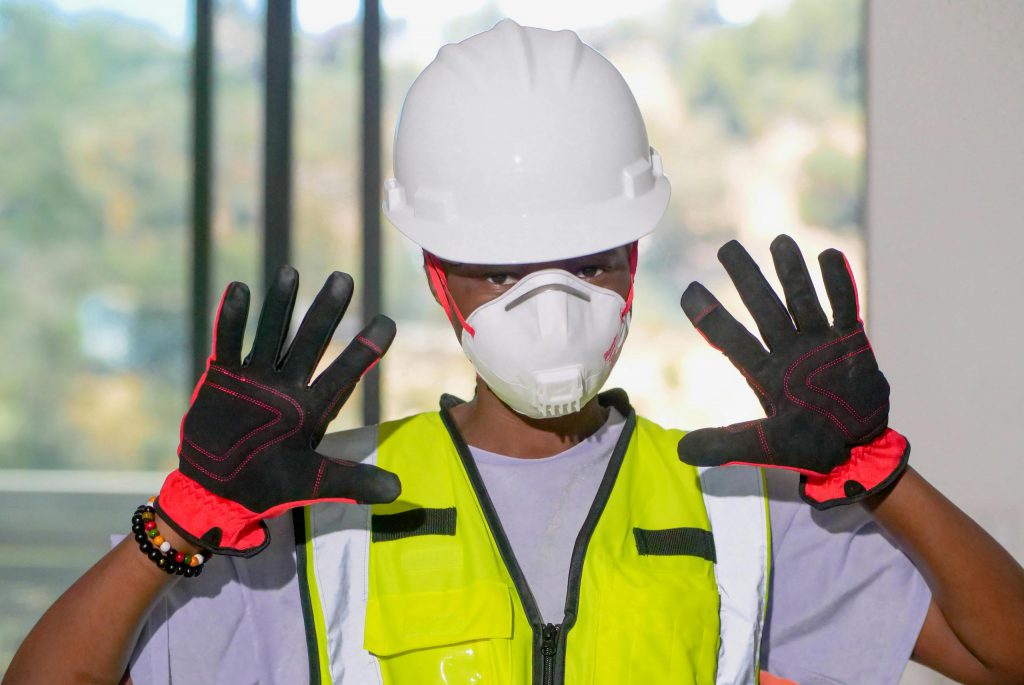During the pandemic, only a quarter of employees felt they had psychological safety in the workplace. Burnout, stress, and feelings of loneliness all increased.
When six in ten employees feel psychologically safe, and able to voice their opinions, businesses can experience a 27% reduction in staff turnover and a 12% increase in productivity.
It also means employees experience 74% less stress, 29% greater life satisfaction, and 76% higher engagement at work.
And psychological safety in the workplace also makes it 67% more likely that workers will apply any newly learned skills to their jobs.
What is psychological safety?
Psychological safety in the workplace looks like people feeling comfortable sharing their ideas and concerns, asking questions, admitting mistakes, and taking risks at work, without fear of negative consequences.
When employees feel able to speak up and make mistakes, they’re happier in their roles and less likely to leave. They’re not spending their working days on edge, waiting for someone to snap at them over a minor error.
How to build a psychologically safe work environment
No-blame culture
A no-blame culture means that if a mistake happens, nobody gets blamed or scapegoated.
The team analyzes the mistake, takes away any learnings from it, and makes changes going forward.
Employees continue to feel able to share constructive feedback with their colleagues. Their mental health doesn’t take a hit out of fear for their futures, either.
As a result, high-performing teams stay high-performing and the psychological safety in the workplace remains.
The Mercedes F1 team is famous for its no-blame company culture. Watching their seven-year winning streak come to an end over the past couple of years has tested this approach. Plus, their new car design has significantly impacted their performance in the championships.
Despite this, nobody blamed or fired anyone on the team.
Instead, they simply moved people around the company to find roles that better fit them.
When asked about the team’s no-blame culture, Mercedes Team Principal, Toto Wolff, explained: “The human mind is structured in a way that when something happens, when a problem comes up in the race, or a part fails, human nature will always be ‘it’s your fault,’ because that allows me to release pressure. Understanding that is an important first step that is just the pressure release valve for yourself.”
He continued: “It’s important to recalibrate yourself, recondition yourself, and then say okay, what has actually gone wrong? And only if you’re calm and reflected, but also an emotional leader, will people be able to come out of their hiding spaces and say, ‘I think we should have done that better or this better.’ I think this is a very important ingredient to make the team progress. To uncover every problem that’s come up and not blame the person.”
Listen to everyone’s opinion—and encourage employees to voice theirs
Not everyone is comfortable voicing their opinions at work. Especially if someone has reprimanded them in the past for doing so, either at their current or a previous job. The only way that will change is if they experience psychological safety in the workplace.
Taking employees’ suggestions, and making a habit of doing so without allowing someone else to take credit for them, will further help employees feel comfortable sharing their thoughts.
If they feel like someone else will get the credit, or like people won’t listen to them, they’re less likely to make suggestions and more likely to retreat into themselves.
Support risk taking
Employees need to feel like they can take risks, or suggest taking a risk, without being penalized for it.
Taking an attitude of “no suggestion is a bad suggestion” opens you up to a wider range of ideas. Even just one of them could revolutionize your business.
There’s no such thing as a stupid question
Employees need to feel like they can ask questions without judgement. Otherwise, they’re less likely to seek out help when they need it.
If they know there’s no bar for what is or isn’t a stupid question, they’re more likely to reach out. They’ll know they can safely ask colleagues or their manager to help them find the answers they need.
If they get judged, talked about behind their back, or ignored for asking questions, they’ll be stuck for longer, feel worse in their role, and struggle even more when a bigger problem arises.
Encourage asking for help
Asking for help is one of the quickest ways to learn and grow. It’s often easier to get advice from someone we work with than to spend time researching something and trying to find the relevant information ourselves.
Not to mention asking for help is a good way for employees to meet team members from other departments.
I’ve had bosses in the past say to me: “don’t come to meet with problems, come to me with solutions.” While I understand wanting employees to solve their own problems, it can create fear around asking for help. Which is exactly the opposite of building psychological safety in the workplace.
It should be acceptable for an employee to ask for help when they’re feeling stuck. They shouldn’t feel like they have to solve everything on their own. They should feel like their colleagues are there to support them.
Embrace everyone’s skills and talents
Every employee has a unique set of skills and talents that they bring to a role. If they don’t experience psychological safety in the workplace, they’re less likely to lean into those skills and talents. As a result, your business doesn’t get to benefit from them.
Instead, employees may find it harder to generate ideas or even think clearly. The pressure of having to adapt to fit into the workplace, rather than be who they are, will take its toll on their physical and mental health.
Psychological safety matters
Psychological safety in the workplace is a key building block for employee satisfaction and engagement. The safer employees feel in the workplace, the more you’re going to get out of them. Plus, it will be better for their long-term health and wellbeing.
If you want to increase psychological safety in the workplace, it’s important to have the right tools. Giving employees a one-stop shop for connecting with colleagues and finding important information lets them know they’re supported.
Plus, with real-time analytics, you can unlock new insights about how to further increase psychological safety in the workplace. If you’d like to learn more, drop by our site, or send us a note at hello@workrowd.com.





